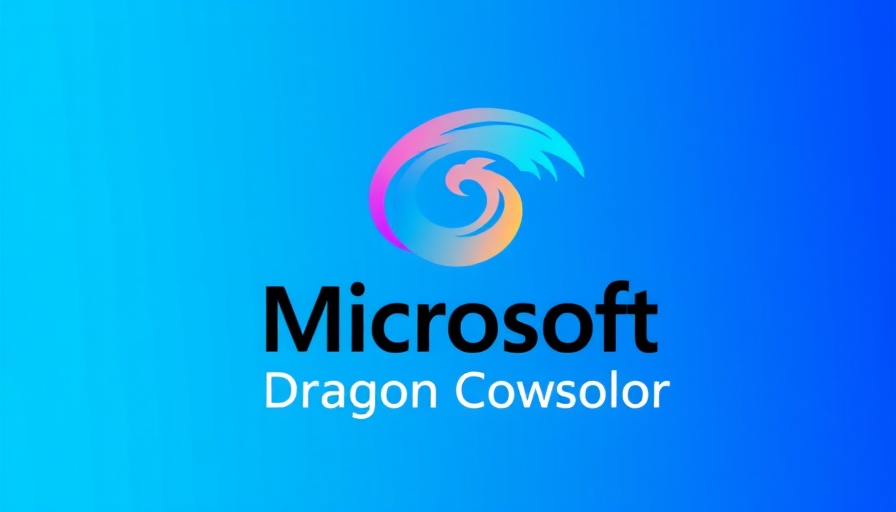
Revolutionizing Healthcare: Microsoft Dragon Copilot's Role
Microsoft has unveiled Dragon Copilot, a cutting-edge AI system designed specifically for the healthcare sector. This innovative AI assistant aims to alleviate some of the significant administrative burdens that clinicians face daily. Through advanced voice dictation and ambient listening technologies facilitated by Nuance, which Microsoft acquired in 2021, Dragon Copilot is set to transform how healthcare professionals interact with patient data and streamline documentation processes.
Key Features: Streamlining Clinical Workflows
At the core of Dragon Copilot are features such as multilanguage ambient note-taking and natural language dictation. Clinicians can simply converse with patients, and the AI captures critical details for creating comprehensive patient records. The ability to automate routine documentation tasks, including conversational orders, referral letters, and after-visit summaries, allows healthcare professionals to focus more on patient care rather than administrative tasks.
Expert Insights: Enhancing Patient Care
According to Joe Petro, Microsoft's VP of Health and Life Sciences Solutions, the goal of Dragon Copilot is clear: to “free clinicians from much of the administrative burden of healthcare.” With reports indicating that 93% of patients felt their doctor was more personable due to AI-assisted interactions, it is evident that these innovations are also enhancing patient experiences. Studies show that using similar technology like Dragon Copilot has significantly reduced clinician burnout, ultimately improving the quality of care they can provide.
A Broader Context: AI in Healthcare
Microsoft is not alone in its quest to integrate AI into healthcare. Competitors such as Google are also developing AI solutions, such as their multimodal image-searching features, aimed at identifying patient health risks. However, while technology like this can enhance efficiency, there is still a cautious approach regarding the reliability of AI-generated information. The FDA has highlighted both potential benefits and risks, emphasizing the importance of combining these technologies with robust safeguards to ensure patient safety and data integrity.
Future Predictions: The AI-Powered Healthcare Landscape
As healthcare continues to evolve, it is predicted that tools like Dragon Copilot will become integral in clinical settings across the globe. By May 2025, Microsoft plans to launch this AI assistant in the U.S. and Canada, followed by expansions into Europe. This global rollout indicates a strong commitment to improving healthcare delivery through technology. Moreover, as clinicians adapt to these innovations, we may see revolutionary changes in patient-provider interactions and overall healthcare outcomes.
Taking Action: How to Prepare for AI Integration
For healthcare professionals eager to delve into AI advancements, understanding the functionalities of Dragon Copilot may be beneficial. Attending workshops or live demonstrations, like those offered at HIMSS, can provide valuable insight into maximizing the advantages of AI tools within clinical workflows. Emphasizing continuous education in AI technologies will not only prepare clinicians for integration but also empower them to use these tools effectively. The collaborative opportunity with AI holds vast potential for improving efficiency and enhancing care quality.
Conclusion: Embracing AI's Role in Healthcare
The integration of AI like Microsoft Dragon Copilot heralds a new era in healthcare. As technology becomes more embedded in daily clinical operations, understanding and adapting to these changes will be essential for healthcare professionals. By embracing these innovations, clinicians can elevate their practice and, ultimately, the patient experience. Explore the benefits of AI-driven solutions today and discover how they can reshape your approach to healthcare.
 Add Row
Add Row  Add
Add 




 Add Row
Add Row  Add
Add 

Write A Comment